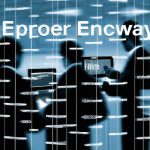Introduction

In today’s fast-paced business landscape, efficiency and effectiveness are paramount. To stay ahead of the competition, organizations need a robust Enterprise Resource Planning (ERP) software solution. But with countless options available, how do you choose the right one? In this article, we will explore the world of leading erp software and why it holds the key to unlocking your business’s full potential.
Definition of ERP Software
ERP software is a comprehensive suite of integrated applications designed to streamline various business processes. It enables seamless coordination and sharing of data across departments, providing a centralized hub for managing key operations such as finance, inventory, sales, human resources, and more. By consolidating essential functions into a single system, ERP software eliminates silos and enhances collaboration, ultimately optimizing productivity and driving growth.
Importance of Choosing a Leading ERP Software
Selecting a leading ERP software solution is a critical decision that can significantly impact your business’s success. By opting for a top-tier ERP system, you ensure access to cutting-edge features, advanced functionality, and ongoing support. A leading ERP software offers scalability, flexibility, and customization options tailored to your organization’s unique needs. It empowers you to adapt to evolving market demands, streamline operations, and make informed, data-driven decisions.
Overview of the Article’s Content
In the upcoming sections, we will delve deeper into the key features that distinguish leading ERP software from its counterparts. We will explore the myriad benefits it brings to organizations, ranging from streamlined business operations to enhanced data accuracy and visibility. Additionally, we will discuss essential factors to consider when selecting an ERP solution, along with real-life case studies showcasing successful implementations. So, let’s embark on this journey to uncover the power of leading ERP software and unlock your business’s true potential.
Key Features of Leading ERP Software
In the ever-evolving business landscape, leading ERP software distinguishes itself by offering a wide array of features that drive efficiency and empower organizations to stay ahead of the competition. Let’s explore some of the key features that make leading ERP software a game-changer:
Scalability and Flexibility
Leading ERP software is designed to grow with your business. It offers scalability, allowing you to seamlessly expand your operations without compromising system performance. Whether you’re a small startup or an established enterprise, leading ERP software provides the flexibility to adapt to your evolving needs, ensuring you can easily accommodate changes in business processes, organizational structure, and industry dynamics.
Integration Capabilities
Integration is at the core of leading ERP software. It seamlessly connects various departments and eliminates data silos, enabling real-time information sharing and collaboration. By integrating key functions like finance, sales, inventory, and customer relationship management (CRM), leading ERP software ensures that every aspect of your business operates in harmony, reducing manual data entry, minimizing errors, and enhancing overall efficiency.
User-Friendly Interface
Leading ERP software prioritizes user experience, offering an intuitive and user-friendly interface. With simple navigation, clear layouts, and easy-to-understand workflows, it ensures that users can quickly adapt to the system and maximize its potential. A user-friendly interface not only enhances productivity but also reduces training time and empowers employees to leverage the software’s full capabilities effortlessly.
Customization Options
Every business operates differently, and leading ERP software recognizes this by offering extensive customization options. It allows you to tailor the software to your unique business processes, workflows, and industry-specific requirements. By customizing the ERP system to align with your organization’s needs, you can optimize operations, improve efficiency, and gain a competitive edge.
Comprehensive Reporting and Analytics
Data is a valuable asset for any organization, and leading ERP software provides robust reporting and analytics capabilities to empower data-driven decision-making. It offers a wide range of pre-built reports and customizable dashboards, enabling you to gain insights into key performance indicators, trends, and patterns. With comprehensive reporting and analytics, you can make informed decisions, identify areas for improvement, and drive business growth.
By leveraging these key features, leading ERP software lays the foundation for streamlined operations, enhanced collaboration, and sustainable growth. In the next section, we will explore the multitude of benefits that organizations can reap by implementing leading ERP software.
Benefits of Using Leading ERP Software
In today’s competitive business landscape, leveraging leading ERP software can provide numerous advantages that drive success. Let’s explore some key benefits that make it a game-changer for organizations.
Streamlined Business Operations
A leading ERP software solution optimizes and automates various business processes, eliminating redundancies and inefficiencies. It integrates different departments, such as finance, inventory, and human resources, into a centralized system, enabling seamless data flow and collaboration. By streamlining operations, you can enhance productivity, reduce manual errors, and accelerate task completion, ultimately gaining a competitive edge.
Enhanced Productivity and Efficiency
By automating routine tasks and providing real-time access to critical information, leading ERP software empowers employees to work more efficiently. With streamlined workflows and automated processes, teams can focus on value-added activities, boosting productivity across the organization. Additionally, features like task tracking, reminders, and notifications help prioritize work, ensuring timely completion and reducing delays.
Improved Data Accuracy and Visibility
Data integrity is crucial for effective decision-making. Leading ERP software ensures data accuracy by eliminating manual data entry and providing real-time updates. With centralized data storage and standardized processes, you can trust the information at hand, enabling better decision-making. Furthermore, comprehensive reporting and analytics tools offer valuable insights into key performance indicators, allowing you to identify trends, spot opportunities, and address challenges proactively.
Better Decision-Making through Real-time Insights
Leading ERP software empowers you with real-time data, enabling quick and informed decision-making. With up-to-date information on inventory levels, sales figures, and customer behavior, you can make data-driven decisions to optimize operations, identify market trends, and align strategies accordingly. By accessing accurate insights promptly, you can stay agile, outpace competitors, and seize opportunities as they arise.
Cost Savings and Resource Optimization
Implementing a leading ERP software solution can result in significant cost savings and resource optimization. By streamlining processes, reducing manual errors, and enhancing productivity, you can save time, effort, and money. Moreover, improved inventory management, demand forecasting, and supply chain visibility enable efficient procurement and minimize excess stock or stockouts. These cost-saving measures contribute to increased profitability and sustainable growth.
By harnessing the benefits of leading ERP software, you can transform your business operations, drive efficiency, and unlock your organization’s true potential. Stay tuned as we delve into essential factors to consider when selecting an ERP solution in the next section.
Factors to Consider when Selecting Leading ERP Software
When choosing a leading ERP software for your business, it’s crucial to consider several factors to ensure a seamless implementation and long-term success. Let’s explore these key considerations in detail:
A. Industry-specific functionality
Every industry has its unique requirements and regulations. Look for an ERP software that offers industry-specific functionality tailored to your business needs. Whether you’re in manufacturing, retail, healthcare, or any other sector, the software should be equipped with features and modules that address your specific challenges and help you stay compliant with industry standards.
B. Vendor reputation and experience
The reputation and experience of the ERP software vendor play a vital role in your decision-making process. Research the vendor’s track record, customer reviews, and case studies to gauge their expertise and reliability. A reputable vendor with extensive industry experience is more likely to provide robust software, ongoing support, and regular updates to meet your evolving business needs.
C. System compatibility and scalability
Ensure that the ERP software you choose is compatible with your existing systems and infrastructure. Seamless integration is essential to avoid disruptions and data inconsistencies. Additionally, consider the scalability of the software. As your business grows, your ERP system should be able to accommodate increased data volumes and user demands without compromising performance.
D. Implementation and support services
Successful ERP implementation requires proper planning, training, and support. Evaluate the vendor’s implementation methodology and the level of support they offer before and after implementation. Look for vendors that provide comprehensive training programs, dedicated support teams, and regular software updates to ensure a smooth transition and ongoing assistance.
E. Total cost of ownership
While cost should not be the sole deciding factor, it’s essential to consider the total cost of ownership (TCO) of the ERP software. Evaluate both upfront costs, such as licensing fees and implementation expenses, as well as ongoing costs like maintenance, upgrades, and support. A transparent pricing structure and a clear understanding of the TCO will help you make an informed decision that aligns with your budget and long-term goals.
By carefully considering these factors, you can select a leading ERP software that not only meets your current requirements but also sets the foundation for future growth and success.
Case Studies: Successful Implementations of Leading ERP Software
Successful implementation of leading ERP software can have a transformative impact on businesses across various industries. Let’s explore a few real-life case studies that highlight the positive outcomes achieved through the adoption of top-tier ERP solutions.
Company A: Improved Inventory Management and Order Fulfillment
Company A, a leading e-commerce retailer, faced significant challenges in managing their inventory and fulfilling customer orders efficiently. By implementing a leading ERP software, they gained real-time visibility into their inventory levels, enabling them to optimize stock levels, reduce excess inventory, and prevent stockouts. The ERP system also integrated seamlessly with their e-commerce platform, automating order processing and fulfillment. As a result, Company A witnessed a significant reduction in order processing time, improved order accuracy, and increased customer satisfaction.
Company B: Streamlined Financial Processes and Reduced Errors
Company B, a multinational manufacturing company, struggled with manual financial processes that were time-consuming and prone to errors. By adopting a leading ERP software, they streamlined their financial operations, automating tasks such as invoicing, accounts payable, and financial reporting. The ERP system provided real-time insights into financial data, allowing for accurate forecasting, budgeting, and cash flow management. Company B experienced a significant reduction in errors, enhanced financial visibility, and improved compliance with regulatory requirements.
Company C: Enhanced Supply Chain Visibility and Logistics Coordination
Company C, a global logistics provider, grappled with the lack of real-time visibility into their supply chain and inefficient coordination between different stakeholders. With the integration of a leading ERP software, they gained end-to-end visibility into their supply chain, from procurement to distribution. The ERP system enabled seamless collaboration between suppliers, warehouses, and transportation partners, optimizing logistics operations and reducing delays. As a result, Company C achieved enhanced supply chain visibility, improved delivery accuracy, and increased customer satisfaction.
These case studies demonstrate the tangible benefits that leading ERP software can bring to businesses across diverse sectors. By leveraging the power of advanced ERP solutions, organizations can overcome operational challenges, enhance efficiency, and drive sustainable growth.
Conclusion
In conclusion, choosing a leading ERP software is a pivotal decision that can drive your business towards unparalleled success. By leveraging the power of a top-tier ERP solution, you can streamline your operations, enhance productivity, and make data-driven decisions that propel your organization forward.
Throughout this article, we have explored the definition of ERP software and highlighted the importance of selecting a leading solution. We have discussed the key features that distinguish leading ERP software, such as scalability, integration capabilities, user-friendly interfaces, customization options, and comprehensive reporting. These features enable your business to adapt to changing market demands, integrate seamlessly with other systems, and empower your teams with intuitive and tailored workflows.
Implementing a leading ERP software brings numerous benefits, including streamlined business operations, enhanced productivity and efficiency, improved data accuracy and visibility, and better decision-making through real-time insights. By centralizing your data and processes, you can optimize resource allocation, reduce costs, and improve customer satisfaction.
When choosing a leading ERP software, consider factors such as industry-specific functionality, vendor reputation and experience, system compatibility and scalability, implementation and support services, and the total cost of ownership. Conduct thorough research, request demos, and engage with references to ensure you select the solution that aligns with your business goals and needs.
At erp.nganhangviet.org, we understand the significance of choosing the right ERP software. Our team is committed to providing you with the best-in-class ERP solutions that empower your business to thrive in today’s competitive landscape. Contact us today to learn more about how our leading ERP software can transform your organization and drive sustainable growth.
Remember, embracing a leading ERP software is not just an investment in technology; it’s an investment in the future success of your business. Take the leap, unlock your business’s true potential, and embark on a transformative journey towards efficiency, productivity, and profitability.

